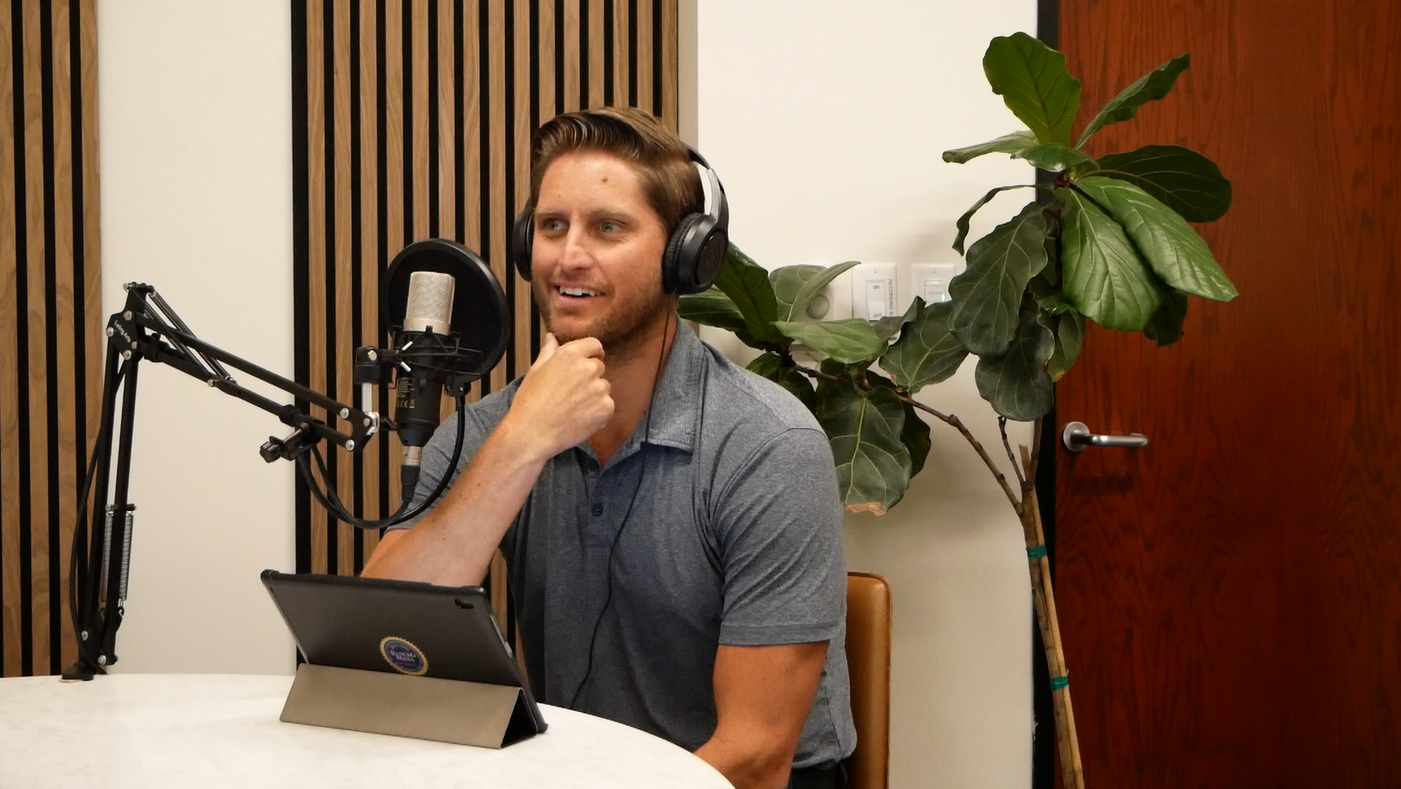Ep. 331 Taking the Mystery Out of Bonding for Public Works Projects
Rancho Mesa's Alyssa Burley and Account Executive of the Surety Department Andy Roberts take the mystery out of bonding for public works projects.
Show Notes: Subscribe to Rancho Mesa's Newsletter.
Director/Host: Alyssa Burley
Guest: Andy Roberts
Producer/Editor: Lauren Stumpf
Music: "Home" by JHS Pedals, “News Room News” by Spence
© Copyright 2023. Rancho Mesa Insurance Services, Inc. All rights reserved.
Transcript
Alyssa Burley: Hi, this is Alyssa Burley with Rancho Mesa's Media Communications and Client Services Department. Thank you for listening to today's top Rancho Mesa News brought to you by our Safety and Risk Management Network StudioOne. Welcome back, everyone. My guest is Andy Roberts account executive in the Surety Group with Rancho Mesa. Today, we're going to try to take the mystery out of bonding for public works projects.
Andy, welcome to the show.
Andy Roberts: Thank you. It's great to be back.
AB: Of course. So obtaining bonds for public works projects can feel like a complex process, but understanding what they are, why they are required and what information is needed, can really take a lot of the mystery out of the process. And I think that you might be the guy to make that seem a little less daunting for us. So, for our listeners, will you briefly explain Bonds and why contractors need them on public works projects?
AR: So, I'm absolutely the guy for that. Bonds are a financial instrument which provide a guarantee to the project owner that the contractor will fulfill their obligation per the terms and conditions of the contract that they have been awarded. You know, most often we see bonds on public works projects as they are required by law, but sometimes we also see general contractors and lenders require bonds as well. You know, but since we're specifically talking about public works projects, there are laws in place requiring bonds on these projects because they are funded by taxpayer dollars, making it very important to mitigate the financial risks associated with these projects and protect those funds.
AB: Okay, so that makes sense. How are contractors able to go about getting bonds for the, you know, these types of projects?
AR: That's a great question. So depending on the size of the project that requires a contractor to get a bond, well, they have a few different options. Many surety companies offer bond programs solely based on the credit of the owners. So, as long as personal credit is good, the surety will offer some levels of support with those programs typically maxing out at $750,000 per project and aggregate depending on the bond company.
But in order to go above those limits, more financial information must be obtained. We'll be looking to get a completed contractor questionnaire, three years of company financials, personal financial statements from all owners and bank statements verifying the cash amounts listed on both the company and personal financial statements. So then after we review all of that information, you know, the bond company and your surety broker will then be able to determine the contractor’s eligibility for the appropriate sized bond program.
AB: All right. So depending on the size of the project, usually it's 750,000 and below that would determine whether or not the owner's financials will be enough for the bond. And then if the project is greater than that, then the surety wants to see both the financials for the company and the owner as well. So that makes sense. The greater the risk, the more financial information they're going to want.
AR: Yep. Exactly.
AB: Yeah. So for these bonds that use the owner's personal financials is the owner personally responsible? Are they on the hook or is the company?
AR: That is another good question, one that could warrant a longer response. But the short answer is that the owner and their spouse will be on the hook personally, no matter what type of program they opt for. In order to get a bond, all owners and their spouses will have to sign a general indemnity agreement. So this document gives the bond company recourse should there be an issue on the job or if the contractor were to default and a claim be filed on the bond. So this is a very important document that, you know, needs to be reviewed thoroughly prior to signing.
AB: Yeah, that really makes the individual think twice about signing that contract.
[Both Laugh]
AR: Yeah.
AB: To make sure that they're actually going to finish that project.
AR: Absolutely.
AB: Alright, so how can securing a bond provide additional revenue sources to help grow a business?
AR: So, you know, having a bond program in place gives the contractor the ability to start bidding jobs with various cities, local municipalities, or, you know, the federal government as well. So, and as of right now, a lot of those entities have tons of work that's bidding and those projects and their revenues are off limits to contractors that don't have a bond program or can't get bonded right now.
AB: Yeah. So it's a good idea to get a program put together so that you can bet on those projects.
AR: Absolutely.
AB: Yeah. Alright Andy, if listeners have questions about their bond program, what's the best way to get in touch with you
AR: So, I can be reached at (619) 937-0166. Or aroberts@ranchomesa.com.
AB: Alright. Well, Andy, thank you for joining me in StudioOne.
AR: Thank you for having me. It's always a pleasure.
AB: This is Alyssa Burley with Rancho Mesa. Thanks for tuning into our latest episode produced by StudioOne. For more information, visit us at ranchomesa.com and subscribe to our weekly newsletter.

